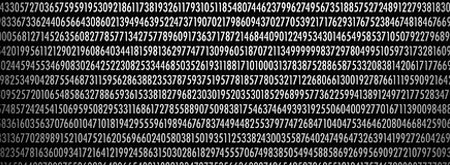Knowing
Besides the determinism theme, there is a second important strand that grows in significance as the film draws to a close: the issue of faith. We discover early on that John is at most an agnostic. Caleb, who is naturally missing his mother dreadfully, wants to hang on to the hope that she is in heaven, but struggles with the knowledge that his father doesn’t believe in it. When Caleb comments on this, John tries to dodge the challenge, insisting that he has never denied heaven, he’s just not sure. He also assures Caleb that he can believe what he wants to. This is partly right and partly very wrong.
He is right that Caleb should be free to believe something which his father doesn’t, but the implication of ‘You believe what you like’ is that Caleb can choose to believe something that brings him comfort whether or not it is true. This is deeply problematic, since our beliefs (if they are not determined) are only valid if they have some correspondence to the nature of reality. If they do not, they are nothing more than wishful thinking. They may be comforting in the short term, but if they are not true they will ultimately fail us. Caleb’s belief may also be problematic in that he seems to have bought into the common notion within western culture that people go to heaven because they’re nice. The biblical view, however, is that entry into ‘the new heavens and new earth’ depends solely on how we respond to Jesus, God’s Son: faith or rejection.
Warning: This article contains plot spoilers
When John’s sister, Grace, comes for a visit we discover that he is estranged from his parents. We are not explicitly told the reason for this, but John’s father is a minister, and the implication seems to be that they fell out over matters of faith. Grace observes, ‘You don’t like being the son of a pastor.’ When she offers to pray for him he responds, ‘Please, don’t.’ It seems that John is a stereotypical rationalist scientist who has no time for anything that cannot be empirically proved. However, what takes place shakes his convictions and his uncertainties. In the course of solving the mystery of what is going on, John and Diana go to Lucinda’s long-abandoned mobile home in the forest where they discover that she had been consumed with anxiety because of what the numbers predicted. As well as news clippings about the disasters, they also find a picture of the prophet Ezekiel receiving the scroll of God’s words, and elements of the vision he sees in Ezekiel 1. Diana says that her mother was obsessed by the picture. The scroll (Ezekiel 2:9–10) is clearly meant to correlate with the list of numbers, since both contains predictions of doom.
The conclusion of the film takes Ezekiel’s vision and interprets it in a way which is fine within the context of a science fiction film, but which completely misunderstands the text. What the prophet saw was a vision of God on his throne, and struggled to find the words to convey what his experience. It was an encounter that shaped his entire life as he brought God’s words of rebuke and challenge to the unfaithful people of Judah in exile in Babylon in the early sixth century BC. It was not an encounter with aliens in a spacecraft. Nevertheless, John Koestler’s encounter with the whispering beings who have been hanging around, and discovering their true identity (wisps of light hinting at angelic wings) transforms his view of the world around him. Faced with the end of the world, for reasons not explained but probably because of God’s judgment, he recovers his faith and is finally reconciled with his father who assures him, ‘This isn’t the end, son.’ The great discovery he has made during the film is not what the numbers mean, or why these things are happening, but rather that there are more dimensions to reality than we are aware of. Science can only go so far; beyond is a spiritual dimension which is not open to scientific investigation.
The epilogue shows us Caleb and Abby, transported to a new world with other ‘chosen ones’ from elsewhere on Earth. Whether this world is somewhere else in space or in time doesn’t matter. The point is clear: they are a new Adam and Eve who will begin the human race over again, and they even have a tree of life. Once again, this makes for a moving ending, but is a nonsense biblically. There is to be a fresh start once God has judged the world, as he inevitably will, but the new heavens and new earth will not be seeded with a few children who have inherited the weaknesses, fallibilities and inbuilt rebellion against God common to all humanity. Instead, they will be populated with all those who have trusted in God’s Son, Jesus Christ, and in his death and resurrection. What he has done not only brings forgiveness and a fresh start now, but guarantees those believers resurrection from the dead into an existence which is free from weakness, failure and rebellion, a perfect world which will last forever. It’s a far more hopeful future than Knowing gives us.
© 2009 Tony Watkins



